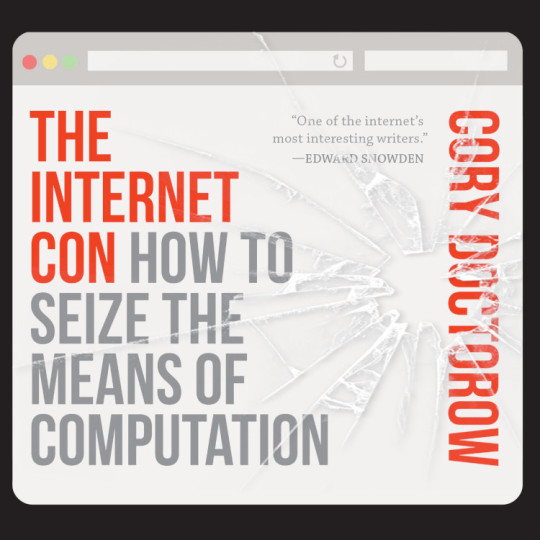#.NET General
Explore tagged Tumblr posts
Text
one of the many things i viscerally hate about br*t*sh small c conservative culture is the way people take weird pride in enduring things they don’t have to endure. nobody actually wants to change anything for the better. this is why new build houses are falling apart at the seams from day 1 and old houses are all uninsulated and structurally held up by black mould. deeply ineffectual and cringe country.
#i do find it to be generational#that window screen post i just reblogged where i mentioned i have magnetic bug nets on my windows#some of my friends have the same things and the ones who dont have them dont care#but mention it to someone over 40 and they’re so weird about it#like they dont outright say it but they genuinely seem offended that u have identified a problem and solved it#rather than just pretending the problem doesnt exist#denial is so deeply ingrained in all these bitches
737 notes
·
View notes
Text






Some February photos 🤍 In the last one Pirlouit is taking a deep breath, getting ready to bray loudly enough to raise the dead. He's always so outraged when he can see me through the kitchen window preparing breakfast for myself, like a monster, while he still hasn't had his breakfast.
#crawling along#for a couple of days i had an amazing new strategy which consisted in keeping a hay net in my kitchen and#carefully and masterfully throwing it out the window in the morning so that it landed on a fence post and hung from there#it worked!! the llamas were a bit startled but they had their hay and i didn't have to go out in my pyjamas before breakfast#but then i told my mum and she shamed me.#''how would you have felt as a kid if i'd opened your bedroom door at 7am#and thrown a bowl of hot chocolate in your general direction then closed the door?''#😔 so i stopped my revolutionary experiment. I also told a friend about it like ''wasn't it efficient though!''#and she said yeah congratulations on your DOGE mindset :)#which felt like a stab in the heart. Anyway i have seen the error of my ways
859 notes
·
View notes
Text
Dumb little headcanon I’ve had rattling around:

The monkeys of Flower Fruit Mountain share the feelings of whomever their master is… which currently happens to be Sun Wukong.
What he feels, they feel. What he thinks, they think.
It’s an instinctual, ritual link between the de-facto king of the mountain and his fuzzy little subjects.
If there’s a certain way he’d like to act but restricts himself from, the monkeys acts on those instincts without refrain.
If he likes someone? They like that someone, too.
And if he really likes someone?
Well.

So. One day Wukong goes missing. Maybe heads out with a goal in mind and stays out a little longer than he expected.
It’s an inherent magic that can’t be turned off or delayed. As long as at least one person is on the mountain, the monkeys have a king.
So, without the Monkey King on Flower Fruit Mountain, there’s only one other person that responsibility can fall onto, only one person who reasonably can serve as (temporary!) ruler of the mountain.
Macaque.
Without his knowledge, he’s been given the “reins” to FFM, which now seems to bend to his whims as he pleases, showering him in convenient stretches of shade to brood and whine under, tossing peaches and bananas into his open hands, peeling pebbles from before his step with each foot forward.
But it goes a little further than even that.
Now the local little fireballs acting like the resident wet rat, pouting and kicking rocks as they grumble in their little monkey language, cowering from the sun and conversation and generally being unpleasant and annoying.
Until Sun Wukong comes back, that is.
And the transfer of power from ruler to ruler on the mountain goes a little slower than usual, and suddenly all these sullen little monkeys are flying into his arms with squealing hoots, nuzzling his cheeks, pressing little monkey kisses to his nose and ears.
After all- they feel the same way that their master does.
#Lego Monkie Kid#LMK#Sun Wukong#Macaque#Shadowpeach#macaque is such a wasted character and it drives me fucking insane#mostly he’s just a generic anti-hero who serves SOLELY as a safety net for MK in his darkest hour#if the writers could move past their insatiable obsession for angst and fucking do some actual ONSCREEN character development with him#that’d be cool
253 notes
·
View notes
Text
Blue Exorcist Character Guidebook 2: Mephisto
Info on Mephisto from the new guidebook! Each character has a profile followed by relevant questions from fans, and then there's an interview section later where Kazue Katoh gives commentary on each major character and each manga arc. I have more guidebook than time, so I'm skipping the parts that are just like...summarizing who he is and stuff. So this will mostly be fan questions and Katoh's commentary
Biographical info
Gender: Male Age: (°w°) Rank/Titles: Director of True Cross Academy and head of the exorcism cram school, Honorary Knight for the Knights of the True Cross, King of Time Anniversary [T/N Katoh gives demons these in lieu of a birthday]: August 28 Blood type: ( ʹ - ʼ ) Height: 195 cm (184 cm without the "horn") Weight: 74 kg Skills and interests: movies, manga, anime, games, music, toys, miscellaneous subcultures
Fan Q&A
How do members of the Knights of the True Cross usually find out that Mephisto is a demon king?
I think some people might find out from books, the internet, etc even before they become exorcists. They do publish demon field guides that you can find at regular libraries, and Mephisto seems like the type to mention it in online interviews. Rin was the only one who didn't know.
How long has he had his current body?
About 200 years.
Which media from Assiah has had the greatest impact on him?
I imagine he would have been shocked the first time he saw a cinematograph.
Mephisto really likes all sorts of entertainment; has he ever tried making something himself?
Demons in general (not just Mephisto) tend to be bad at creative pursuits, though there are exceptions. Mephisto has a certain respect for human creativity.
Why is he so fond of Beelzebub?
Beelzebub just kind of struck a chord with him. Meanwhile, Beelzebub also likes being spoiled by Mephisto.
Which other demon kings get along with Mephisto the best?
In order: 1. Beelzebub 2. Amaimon 3. Egyn 4. Astaroth 5. Iblis 6. Lucifer [T/N it took me like an entire minute to work out that Azazel is the one missing from this list. Presumably because he's a rock]
Has Mephisto ever altered the past?
He sure does say a lot of things that imply that! [T/N: Katoh. Katoh. Katoh.]
How rich is Mephisto exactly?
He's actually one of the world's top businessmen and investors. His total assets are probably over one trillion yen [T/N: Jesus f*ck][T/N: that's about US$6.7 billion]
Author interview
Mephisto is a character who can solve just about anything; does that make him hard to write? Honestly, he's super easy to deploy. Mephisto has the plot in the palm of his hand and can fix stuff behind the scenes; he's the one pulling the strings. For adaptations and spinoffs, I just say "if you need to fill in a plot hole, make it Mephisto's fault" (laughs). But I do think it's dangerous to overdo it.
He even took on a sort of narrator role in chapter 44, didn't he? Around Volume 10, I was trying to treat each chapter like its own self-contained oneshot. Mephisto didn't even feel out of place as an omniscient narrator for one chapter, and for me that really drove home what a convenient character he is. Though I'm always wondering when and how to show Mephisto's own serious motives and inner thoughts, since he does fall into that eternal comic narrator role.
He can suddenly turn terrifying just when you were thinking he was comical. Hidden depths. Fundamentally he's on the humans' side, and he's often in charge of comic relief, but I do want to show his demonic side too. Same with the familiars; I want to portray the demons as something humans are afraid of.
#if you saw me post this to my reblog blog then no you didn't#blue exorcist#ao no exorcist#mephisto pheles#translation#blue exorcist guidebook 2#did you know forbes keeps a list of every billionaire's net worth that updates every 5 min like a dystopian mmorpg leaderboard#Katoh gave total assets instead of net worth but still. General ballpark of world's 500th richest guy#*Old Man Yells At Cloud Voice* in my day that would've been top 10 (<-does not actually know if that's true)
168 notes
·
View notes
Text
Forcing your computer to rat you out

Powerful people imprisoned by the cluelessness of their own isolation, locked up with their own motivated reasoning: “It’s impossible to get a CEO to understand something when his quarterly earnings call depends on him not understanding it.”
Take Mark Zuckerberg. Zuckerberg insists that anyone who wanted to use a pseudonym online is “two-faced,” engaged in dishonest social behavior. The Zuckerberg Doctrine claims that forcing people to use their own names is a way to ensure civility. This is an idea so radioactively wrong, it can be spotted from orbit.
From the very beginning, social scientists (both inside and outside Facebook) told Zuckerberg that he was wrong. People have lots of reasons to hide their identities online, both good and bad, but a Real Names Policy affects different people differently:
https://memex.craphound.com/2018/01/22/social-scientists-have-warned-zuck-all-along-that-the-facebook-theory-of-interaction-would-make-people-angry-and-miserable/
For marginalized and at-risk people, there are plenty of reasons to want to have more than one online identity — say, because you are a #MeToo whistleblower hoping that Harvey Weinstein won’t sic his ex-Mossad mercenaries on you:
https://www.newyorker.com/news/news-desk/harvey-weinsteins-army-of-spies
Or maybe you’re a Rohingya Muslim hoping to avoid the genocidal attentions of the troll army that used Facebook to organize — under their real, legal names — to rape and murder you and everyone you love:
https://www.amnesty.org/en/latest/news/2022/09/myanmar-facebooks-systems-promoted-violence-against-rohingya-meta-owes-reparations-new-report/
But even if no one is looking to destroy your life or kill you and your family, there are plenty of good reasons to present different facets of your identity to different people. No one talks to their lover, their boss and their toddler in exactly the same way, or reveals the same facts about their lives to those people. Maintaining different facets to your identity is normal and healthy — and the opposite, presenting the same face to everyone in your life, is a wildly terrible way to live.
None of this is controversial among social scientists, nor is it hard to grasp. But Zuckerberg stubbornly stuck to this anonymity-breeds-incivility doctrine, even as dictators used the fact that Facebook forced dissidents to use their real names to retain power through the threat (and reality) of arrest and torture:
https://pluralistic.net/2023/01/25/nationalize-moderna/#hun-sen
Why did Zuck cling to this dangerous and obvious fallacy? Because the more he could collapse your identity into one unitary whole, the better he could target you with ads. Truly, it is impossible to get a billionaire to understand something when his mega-yacht depends on his not understanding it.
This motivated reasoning ripples through all of Silicon Valley’s top brass, producing what Anil Dash calls “VC QAnon,” the collection of conspiratorial, debunked and absurd beliefs embraced by powerful people who hold the digital lives of billions of us in their quivering grasp:
https://www.anildash.com/2023/07/07/vc-qanon/
These fallacy-ridden autocrats like to disguise their demands as observations, as though wanting something to be true was the same as making it true. Think of when Eric Schmidt — then the CEO of Google — dismissed online privacy concerns, stating “If you have something that you don’t want anyone to know, maybe you shouldn’t be doing it in the first place”:
https://www.eff.org/deeplinks/2009/12/google-ceo-eric-schmidt-dismisses-privacy
Schmidt was echoing the sentiments of his old co-conspirator, Sun Microsystems CEO Scott McNealy: “You have zero privacy anyway. Get over it”:
https://www.wired.com/1999/01/sun-on-privacy-get-over-it/
Both men knew better. Schmidt, in particular, is very jealous of his own privacy. When Cnet reporters used Google to uncover and publish public (but intimate and personal) facts about Schmidt, Schmidt ordered Google PR to ignore all future requests for comment from Cnet reporters:
https://www.cnet.com/tech/tech-industry/how-cnet-got-banned-by-google/
(Like everything else he does, Elon Musk’s policy of responding to media questions about Twitter with a poop emoji is just him copying things other people thought up, making them worse, and taking credit for them:)
https://www.theverge.com/23815634/tesla-elon-musk-origin-founder-twitter-land-of-the-giants
Schmidt’s actions do not reflect an attitude of “If you have something that you don’t want anyone to know, maybe you shouldn’t be doing it in the first place.” Rather, they are the normal response that we all have to getting doxed.
When Schmidt and McNealy and Zuck tell us that we don’t have privacy, or we don’t want privacy, or that privacy is bad for us, they’re disguising a demand as an observation. “Privacy is dead” actually means, “When privacy is dead, I will be richer than you can imagine, so stop trying to save it, goddamnit.”
We are all prone to believing our own bullshit, but when a tech baron gets high on his own supply, his mental contortions have broad implications for all of us. A couple years after Schmidt’s anti-privacy manifesto, Google launched Google Plus, a social network where everyone was required to use their “real name.”
This decision — justified as a means of ensuring civility and a transparent ruse to improve ad targeting — kicked off the Nym Wars:
https://epeus.blogspot.com/2011/08/google-plus-must-stop-this-identity.html
One of the best documents to come out of that ugly conflict is “Falsehoods Programmers Believe About Names,” a profound and surprising enumeration of all the ways that the experiences of tech bros in Silicon Valley are the real edge-cases, unreflective of the reality of billions of their users:
https://www.kalzumeus.com/2010/06/17/falsehoods-programmers-believe-about-names/
This, in turn, spawned a whole genre of programmer-fallacy catalogs, falsehoods programmers believe about time, currency, birthdays, timezones, email addresses, national borders, nations, biometrics, gender, language, alphabets, phone numbers, addresses, systems of measurement, and, of course, families:
https://github.com/kdeldycke/awesome-falsehood
But humility is in short supply in tech. It’s impossible to get a programmer to understand something when their boss requires them not to understand it. A programmer will happily insist that ordering you to remove your “mask” is for your own good — and not even notice that they’re taking your skin off with it.
There are so many ways that tech executives could improve their profits if only we would abandon our stubborn attachment to being so goddamned complicated. Think of Netflix and its anti-passsword-sharing holy war, which is really a demand that we redefine “family” to be legible and profitable for Netflix:
https://pluralistic.net/2023/02/02/nonbinary-families/#red-envelopes
But despite the entreaties of tech companies to collapse our identities, our families, and our online lives into streamlined, computably hard-edged shapes that fit neatly into their database structures, we continue to live fuzzy, complicated lives that only glancingly resemble those of the executives seeking to shape them.
Now, the rich, powerful people making these demands don’t plan on being constrained by them. They are conservatives, in the tradition of #FrankWilhoit, believers in a system of “in-groups whom the law protects but does not bind, alongside out-groups whom the law binds but does not protect”:
https://crookedtimber.org/2018/03/21/liberals-against-progressives/#comment-729288
As with Schmidt’s desire to spy on you from asshole to appetite for his own personal gain, and his violent aversion to having his own personal life made public, the tech millionaires and billionaires who made their fortune from the flexibility of general purpose computers would like to end that flexibility. They insist that the time for general purpose computers has passed, and that today, “consumers” crave the simplicity of appliances:
https://memex.craphound.com/2012/01/10/lockdown-the-coming-war-on-general-purpose-computing/
It is in the War On General Purpose Computing that we find the cheapest and flimsiest rhetoric. Companies like Apple — and their apologists — insist that no one wants to use third-party app stores, or seek out independent repair depots — and then spend millions to make sure that it’s illegal to jailbreak your phone or get it fixed outside of their own official channel:
https://doctorow.medium.com/apples-cement-overshoes-329856288d13
The cognitive dissonance of “no one wants this,” and “we must make it illegal to get this” is powerful, but the motivated reasoning is more powerful still. It is impossible to get Tim Cook to understand something when his $49 million paycheck depends on him not understanding it.
The War on General Purpose Computing has been underway for decades. Computers, like the people who use them, stubbornly insist on being reality-based, and the reality of computers is that they are general purpose. Every computer is a Turing complete, universal Von Neumann machine, which means that it can run every valid program. There is no way to get a computer to be almost Turing Complete, only capable of running programs that don’t upset your shareholders’ fragile emotional state.
There is no such thing as a printer that will only run the “reject third-party ink” program. There is no such thing as a phone that will only run the “reject third-party apps” program. There are only laws, like the Section 1201 of the Digital Millennium Copyright Act, that make writing and distributing those programs a felony punishable by a five-year prison sentence and a $500,000 fine (for a first offense).
That is to say, the War On General Purpose Computing is only incidentally a technical fight: it is primarily a legal fight. When Apple says, “You can’t install a third party app store on your phone,” what they means is, “it’s illegal to install that third party app store.” It’s not a technical countermeasure that stands between you and technological self-determination, it’s a legal doctrine we can call “felony contempt of business model”:
https://locusmag.com/2020/09/cory-doctorow-ip/
But the mighty US government will not step in to protect a company’s business model unless it at least gestures towards the technical. To invoke DMCA 1201, a company must first add the thinnest skin of digital rights management to their product. Since 1201 makes removing DRM illegal, a company can use this molecule-thick scrim of DRM to felonize any activity that the DRM prevents.
More than 20 years ago, technologists started to tinker with ways to combine the legal and technical to tame the wild general purpose computer. Starting with Microsoft’s Palladium project, they theorized a new “Secure Computing” model for allowing companies to reach into your computer long after you had paid for it and brought it home, in order to discipline you for using it in ways that undermined its shareholders’ interest.
Secure Computing began with the idea of shipping every computer with two CPUs. The first one was the normal CPU, the one you interacted with when you booted it up, loaded your OS, and ran programs. The second CPU would be a Trusted Platform Module, a brute-simple system-on-a-chip designed to be off-limits to modification, even by its owner (that is, you).
The TPM would ship with a limited suite of simple programs it could run, each thoroughly audited for bugs, as well as secret cryptographic signing keys that you were not permitted to extract. The original plan called for some truly exotic physical security measures for that TPM, like an acid-filled cavity that would melt the chip if you tried to decap it or run it through an electron-tunneling microscope:
https://pluralistic.net/2020/12/05/trusting-trust/#thompsons-devil
This second computer represented a crack in the otherwise perfectly smooth wall of a computer’s general purposeness; and Trusted Computing proposed to hammer a piton into that crack and use it to anchor a whole superstructure that could observe — and limited — the activity of your computer.
This would start with observation: the TPM would observe every step of your computer’s boot sequence, creating cryptographic hashes of each block of code as it loaded and executed. Each stage of the boot-up could be compared to ��known good” versions of those programs. If your computer did something unexpected, the TPM could halt it in its tracks, blocking the boot cycle.
What kind of unexpected things do computers do during their boot cycle? Well, if your computer is infected with malware, it might load poisoned versions of its operating system. Once your OS is poisoned, it’s very hard to detect its malicious conduct, since normal antivirus programs rely on the OS to faithfully report what your computer is doing. When the AV program asks the OS to tell it which programs are running, or which files are on the drive, it has no choice but to trust the OS’s response. When the OS is compromised, it can feed a stream of lies to users’ programs, assuring these apps that everything is fine.
That’s a very beneficial use for a TPM, but there’s a sinister flipside: the TPM can also watch your boot sequence to make sure that there aren’t beneficial modifications present in your operating system. If you modify your OS to let you do things the manufacturer wants to prevent — like loading apps from a third-party app-store — the TPM can spot this and block it.
Now, these beneficial and sinister uses can be teased apart. When the Palladium team first presented its research, my colleague Seth Schoen proposed an “owner override”: a modification of Trusted Computing that would let the computer’s owner override the TPM:
https://web.archive.org/web/20021004125515/http://vitanuova.loyalty.org/2002-07-05.html
This override would introduce its own risks, of course. A user who was tricked into overriding the TPM might expose themselves to malicious software, which could harm that user, as well as attacking other computers on the user’s network and the other users whose data were on the compromised computer’s drive.
But an override would also provide serious benefits: it would rule out the monopolistic abuse of a TPM to force users to run malicious code that the manufacturer insisted on — code that prevented the user from doing things that benefited the user, even if it harmed the manufacturer’s shareholders. For example, with owner override, Microsoft couldn’t force you to use its official MS Office programs rather than third-party compatible programs like Apple’s iWork or Google Docs or LibreOffice.
Owner override also completely changed the calculus for another, even more dangerous part of Trusted Computing: remote attestation.
Remote Attestation is a way for third parties to request a reliable, cryptographically secured assurances about which operating system and programs your computer is running. In Remote Attestation, the TPM in your computer observes every stage of your computer’s boot, gathers information about all the programs you’re running, and cryptographically signs them, using the signing keys the manufacturer installed during fabrication.
You can send this “attestation” to other people on the internet. If they trust that your computer’s TPM is truly secure, then they know that you have sent them a true picture of your computer’s working (the actual protocol is a little more complicated and involves the remote party sending you a random number to cryptographically hash with the attestation, to prevent out-of-date attestations).
Now, this is also potentially beneficial. If you want to make sure that your technologically unsophisticated friend is running an uncompromised computer before you transmit sensitive data to it, you can ask them for an attestation that will tell you whether they’ve been infected with malware.
But it’s also potentially very sinister. Your government can require all the computers in its borders to send a daily attestation to confirm that you’re still running the mandatory spyware. Your abusive spouse — or abusive boss — can do the same for their own disciplinary technologies. Such a tool could prevent you from connecting to a service using a VPN, and make it impossible to use Tor Browser to protect your privacy when interacting with someone who wishes you harm.
The thing is, it’s completely normal and good for computers to lie to other computers on behalf of their owners. Like, if your IoT ebike’s manufacturer goes out of business and all their bikes get bricked because they can no longer talk to their servers, you can run an app that tricks the bike into thinking that it’s still talking to the mothership:
https://nltimes.nl/2023/07/15/alternative-app-can-unlock-vanmoof-bikes-popular-amid-bankruptcy-fears
Or if you’re connecting to a webserver that tries to track you by fingerprinting you based on your computer’s RAM, screen size, fonts, etc, you can order your browser to send random data about this stuff:
https://jshelter.org/fingerprinting/
Or if you’re connecting to a site that wants to track you and nonconsensually cram ads into your eyeballs, you can run an adblocker that doesn’t show you the ads, but tells the site that it did:
https://www.eff.org/deeplinks/2019/07/adblocking-how-about-nah
Owner override leaves some of the beneficial uses of remote attestation intact. If you’re asking a friend to remotely confirm that your computer is secure, you’re not going to use an override to send them bad data about about your computer’s configuration.
And owner override also sweeps all of the malicious uses of remote attestation off the board. With owner override, you can tell any lie about your computer to a webserver, a site, your boss, your abusive spouse, or your government, and they can’t spot the lie.
But owner override also eliminates some beneficial uses of remote attestation. For example, owner override rules out remote attestation as a way for strangers to play multiplayer video games while confirming that none of them are using cheat programs (like aimhack). It also means that you can’t use remote attestation to verify the configuration of a cloud server you’re renting in order to assure yourself that it’s not stealing your data or serving malware to your users.
This is a tradeoff, and it’s a tradeoff that’s similar to lots of other tradeoffs we make online, between the freedom to do something good and the freedom to do something bad. Participating anonymously, contributing to free software, distributing penetration testing tools, or providing a speech platform that’s open to the public all represent the same tradeoff.
We have lots of experience with making the tradeoff in favor of restrictions rather than freedom: powerful bad actors are happy to attach their names to their cruel speech and incitement to violence. Their victims are silenced for fear of that retaliation.
When we tell security researchers they can’t disclose defects in software without the manufacturer’s permission, the manufacturers use this as a club to silence their critics, not as a way to ensure orderly updates.
When we let corporations decide who is allowed to speak, they act with a mixture of carelessness and self-interest, becoming off-the-books deputies of authoritarian regimes and corrupt, powerful elites.
Alas, we made the wrong tradeoff with Trusted Computing. For the past twenty years, Trusted Computing has been creeping into our devices, albeit in somewhat denatured form. The original vision of acid-filled secondary processors has been replaced with less exotic (and expensive) alternatives, like “secure enclaves.” With a secure enclave, the manufacturer saves on the expense of installing a whole second computer, and instead, they draw a notional rectangle around a region of your computer’s main chip and try really hard to make sure that it can only perform a very constrained set of tasks.
This gives us the worst of all worlds. When secure enclaves are compromised, we not only lose the benefit of cryptographic certainty, knowing for sure that our computers are only booting up trusted, unalterted versions of the OS, but those compromised enclaves run malicious software that is essentially impossible to detect or remove:
https://pluralistic.net/2022/07/28/descartes-was-an-optimist/#uh-oh
But while Trusted Computing has wormed its way into boot-restrictions — preventing you from jailbreaking your computer so it will run the OS and apps of your choosing — there’s been very little work on remote attestation…until now.
Web Environment Integrity is Google’s proposal to integrate remote attestation into everyday web-browsing. The idea is to allow web-servers to verify what OS, extensions, browser, and add-ons your computer is using before the server will communicate with you:
https://github.com/RupertBenWiser/Web-Environment-Integrity/blob/main/explainer.md
Even by the thin standards of the remote attestation imaginaries, there are precious few beneficial uses for this. The googlers behind the proposal have a couple of laughable suggestions, like, maybe if ad-supported sites can comprehensively refuse to serve ad-blocking browsers, they will invest the extra profits in making things you like. Or: letting websites block scriptable browsers will make it harder for bad people to auto-post fake reviews and comments, giving users more assurances about the products they buy.
But foundationally, WEI is about compelling you to disclose true facts about yourself to people who you want to keep those facts from. It is a Real Names Policy for your browser. Google wants to add a new capability to the internet: the ability of people who have the power to force you to tell them things to know for sure that you’re not lying.
The fact that the authors assume this will be beneficial is just another “falsehood programmers believe”: there is no good reason to hide the truth from other people. Squint a little and we’re back to McNealy’s “Privacy is dead, get over it.” Or Schmidt’s “If you have something that you don’t want anyone to know, maybe you shouldn’t be doing it in the first place.”
And like those men, the programmers behind this harebrained scheme don’t imagine that it will ever apply to them. As Chris Palmer — who worked on Chromium — points out, this is not compatible with normal developer tools or debuggers, which are “incalculably valuable and not really negotiable”:
https://groups.google.com/a/chromium.org/g/blink-dev/c/Ux5h_kGO22g/m/5Lt5cnkLCwAJ
This proposal is still obscure in the mainstream, but in tech circles, it has precipitated a flood of righteous fury:
https://arstechnica.com/gadgets/2023/07/googles-web-integrity-api-sounds-like-drm-for-the-web/
As I wrote last week, giving manufacturers the power to decide how your computer is configured, overriding your own choices, is a bad tradeoff — the worst tradeoff, a greased slide into terminal enshittification:
https://pluralistic.net/2023/07/24/rent-to-pwn/#kitt-is-a-demon
This is how you get Unauthorized Bread:
https://arstechnica.com/gaming/2020/01/unauthorized-bread-a-near-future-tale-of-refugees-and-sinister-iot-appliances/
All of which leads to the question: what now? What should be done about WEI and remote attestation?
Let me start by saying: I don’t think it should be illegal for programmers to design and release these tools. Code is speech, and we can’t understand how this stuff works if we can’t study it.
But programmers shouldn’t deploy it in production code, in the same way that programmers should be allowed to make pen-testing tools, but shouldn’t use them to attack production systems and harm their users. Programmers who do this should be criticized and excluded from the society of their ethical, user-respecting peers.
Corporations that use remote attestation should face legal restrictions: privacy law should prevent the use of remote attestation to compel the production of true facts about users or the exclusion of users who refuse to produce those facts. Unfair competition law should prevent companies from using remote attestation to block interoperability or tie their products to related products and services.
Finally, we must withdraw the laws that prevent users and programmers from overriding TPMs, secure enclaves and remote attestations. You should have the right to study and modify your computer to produce false attestations, or run any code of your choosing. Felony contempt of business model is an outrage. We should alter or strike down DMCA 1201, the Computer Fraud and Abuse Act, and other laws (like contract law’s “tortious interference”) that stand between you and “sole and despotic dominion” over your own computer. All of that applies not just to users who want to reconfigure their own computers, but also toolsmiths who want to help them do so, by offering information, code, products or services to jailbreak and alter your devices.
Tech giants will squeal at this, insisting that they serve your interests when they prevent rivals from opening up their products. After all, those rivals might be bad guys who want to hurt you. That’s 100% true. What is likewise true is that no tech giant will defend you from its own bad impulses, and if you can’t alter your device, you are powerless to stop them:
https://pluralistic.net/2022/11/14/luxury-surveillance/#liar-liar
Companies should be stopped from harming you, but the right place to decide whether a business is doing something nefarious isn’t in the boardroom of that company’s chief competitor: it’s in the halls of democratically accountable governments:
https://www.eff.org/wp/interoperability-and-privacy
So how do we get there? Well, that’s another matter. In my next book, The Internet Con: How to Seize the Means of Computation (Verso Books, Sept 5), I lay out a detailed program, describing which policies will disenshittify the internet, and how to get those policies:
https://www.versobooks.com/products/3035-the-internet-con
Predictably, there are challenges getting this kind of book out into the world via our concentrated tech sector. Amazon refuses to carry the audio edition on its monopoly audiobook platform, Audible, unless it is locked to Amazon forever with mandatory DRM. That’s left me self-financing my own DRM-free audio edition, which is currently available for pre-order via this Kickstarter:
http://seizethemeansofcomputation.org

I’m kickstarting the audiobook for “The Internet Con: How To Seize the Means of Computation,” a Big Tech disassembly manual to disenshittify the web and bring back the old, good internet. It’s a DRM-free book, which means Audible won’t carry it, so this crowdfunder is essential. Back now to get the audio, Verso hardcover and ebook:
https://www.kickstarter.com/projects/doctorow/the-internet-con-how-to-seize-the-means-of-computation

If you’d like an essay-formatted version of this post to read or share, here’s a link to it on pluralistic.net, my surveillance-free, ad-free, tracker-free blog:
https://pluralistic.net/2023/08/02/self-incrimination/#wei-bai-bai

[Image ID: An anatomical drawing of a flayed human head; it has been altered to give it a wide-stretched mouth revealing a gadget nestled in the back of the figure's throat, connected by a probe whose two coiled wires stretch to an old fashioned electronic box. The head's eyes have been replaced by the red, menacing eye of HAL 9000 from Stanley Kubrick's '2001: A Space Odyssey.' Behind the head is a code waterfall effect as seen in the credits of the Wachowskis' 'The Matrix.']

Image: Cryteria (modified) https://commons.wikimedia.org/wiki/File:HAL9000.svg
CC BY 3.0 https://creativecommons.org/licenses/by/3.0/deed.en
#pluralistic#chaffing#spoofing#remote attestation#rene descartes#adversarial interoperability#war on general purpose computing#canvas attacks#vpns#compelled speech#onion routing#owner override#stalkerware#ngscb#palladium#trusted computing#secure enclaves#tor#interop#net neutrality#taking the fifth#right to remain silent#real names policy#the zuckerberg doctrine#none of your business#the right to lie#right to repair#bossware#spyware#wei web environment integrity
2K notes
·
View notes
Text


Tristana x Tavern
#ai generated#ai#ai art#ai girl#ai artwork#ai fanart#ai woman#ai sexy#great breasts#massive breasts#big areola#sexy areolas#curvy body#body shape#big bootie#thick hips#thick babe#curvy#thickwomen#fantasy#leather#fish net#skirt#beer#tavern#medieval#purple#purple skin#league of legends#lol
159 notes
·
View notes
Photo

#purple#blue#net art#pretty#slime#colors#artists on tumblr#generative art#gif#art#color#digital art#colorful#sensory#relax#gifs#azul#color palette#beautiful#pride#RGB#*d33#*pfn 1129 v sp0#*c0.224.0.89.102.178#*mp0000.0995.0000#*tp0000.0683.0000
76 notes
·
View notes
Text



Do not use ChatGPT for anything. Definitely do not use ChatGPT in meditative, spiritual, or religious practices.
84 notes
·
View notes
Text
my parents have no idea i’m being gay on the internet
#my parents think i’m INNOCENTLY BROWSING THE NET#for INFORMATION#i mean yeah information#but they don’t know that apart from being an academic nerd#and a general geek#i’m also in one of the gayest growing fandoms#mmmmmmm#byler#mike wheeler#will byers#byler endgame#byler nation#miwi#antimileven#byler is canon#byler brainrot
96 notes
·
View notes
Text
i unironically genuinely despise jjk with all my being and spirit sometimes im not even saying this to be like jokes haha i genuinely from the bottom of my heart wish this series did not exist or that i could at the very least have treated it the way i treat like…attack on titan or something
#aka general ambivalence and unaware#eternal sunshine of the spotless mind my fking brain of this series i want my prime 20s back#GIVE IT BACK#some say i am not technically out of my prime 20s i don’t care#this series fking aged me i hate it i hate everything it has brought into my life#series creating net losses at this point
319 notes
·
View notes
Text

BSOD v2 Tokyo Tower_2
#tokyo tower#openai#netart#post internet#cyberpunk#tokyo#net art#postinternet#art#digital#retro computing#windows#shut down#pop art#contemporary art#ai generated#night#nostalgia#warakami#bsod
254 notes
·
View notes
Text



scarybex's website
#goth#gawth#mall goth#goth aesthetic#mallgoth#90s goth#gothic#kantharohs#aesthetic#bex hewitt#i love bex's page in general expect more#old#webfinds#webcore#old net#old web#old web find#old web goth#goth internet#2000s goth#gothgoth#goth fashion#goth subculture#y2k#00s#2000s#early 2000s#2000s aesthetic#2000s internet
342 notes
·
View notes
Text
i'm sorry that the last time i was with him i tried to pick a fight. i'm sorry that i spent most of my life angry at him. i mean, for all i know he died thinking that i hate him. [...] i miss him, man and i feel guilty as hell. i used to be mad at him. i—i mean, i used to… i used to hate the guy but now i—i… i get it. he was…just doing the best he could. truth is my dad died before i got to tell him that i understand why he did what he did and i forgive him for what it did to us. i do. and i just—i love him. and dad made up for that how? by being father of the year?
#sorry i just desperately needed a clip of these scenes consecutively#i'm obsessed with sam's nonpathologising of john's abuse in favour of viewing his actions as those of a grieving man#and how his anger towards his father but sympathy towards john winchester coexist. when he acknowledges john both positively or negativtely#in the later seasons it's usually net-neutral to positive. either way their dynamic plays HEAVILY into sam's guilt and shame complexes#throughout the rest of the show but especially so within his and dean's relationship and abuse apologia within it but also generally#the source of his emotional compartmentalisation is right here <3 in between dean and john and the impala <3#<- also note sam driving in the first scene!!! symbolic as always#1.20#14.13
42 notes
·
View notes
Text
I am thinkink about . . . vegetables :)
#we've got netting up along the porch so i'm going to grow my two favorite pole bean cultivars (Rattlesnake and Northeaster)#and Armenian cucumbers#and maybe a couple small squashes or gourds#(maybe even a couple yardlong beans as well; they're not super productive but they look so fun)#and it will turn the part of the porch with my hammock into a little arbor :)#and then we have the veggie bed where I'm gonna broadcast seed greens and grow Weird Carrots and perhaps a brassica or two#and then SQUASH MOUND!#i ran out of my beloved White's Strain Butterbush which was a secret packet sent to me when i was a Seed Savers member so i can't get more#WAIT I JUST REMEMBERED THE EXCHANGE#maybe i CAN find that squash again#if not butternut will do fine#and probably black futsu pumpkins bc the vampires don't like 'em#cucurbita moschata my beloved 💚💚💚💚💚💚💚#gonna be singing all the songs from my old inter-generational folk choir's vegetable-themed concert#gonna make this garden grow
34 notes
·
View notes
Text
come to think of it, the chantry is absurdly overcommitted to their haterism. why don’t they grant secret pardons to blood mages & have them work for them under the table? oh u need some land grants from the nobility? call ur pet blood mage. they’ll make it happen. u don’t trust the first enchanters? call ur pet blood mage. they’ll sort it out.
#obviously the fear is conspiracy/things spiraling out of hand#but the general populace hates malificarum SO bad there is no safety net out there!#torture doesn’t work fyi (<-for information anyway)#but if ur using chantry interrogators/enforcers anyway…….#seekers can beat the shit out of u but blood magic + entropy are sth else
21 notes
·
View notes
Text


Samui from Naruto Shipuden
#ai#ai generated#ai artwork#ai art#ai anime#ai woman#ai fanart#ai waifu#waifuanime#waifu#sexy waifu#naruto shipuden#naruto fanart#naruto#koh samui#samui#fish net#blond hair#great breasts#cleavege#cleavalicous#kimono#body shape#curvy body#beautiful body#woman#beauty
233 notes
·
View notes